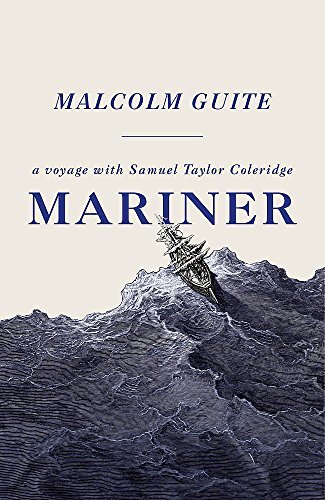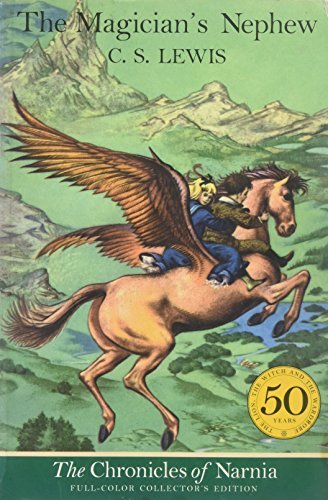Part Two: The Other (with Malcolm Guite)

Gustave Dore, The Albatross is Shot,
It swept on, coming directly towards me. I spread my arms in answer to its spread wings, as if I was going to embrace it. I spoke out loud. Welcome! Welcome! Welcome! was what I think I meant to say, but the Wind took my breath from me and all I could manage was: ‘Come! Come! Come!’— Susanna Clarke, Piranesi
The bird sailed across the heaving Waves, never once beating its wings. With great skill and ease it tipped itself slightly sideways to pass through the Doorway that separated us. Its wins-and surpassed even the width of the Door. I knew what it was.
An albatross!
Dear Friends,
Last week, we met Piranesi, a gentle soul who lives in what he calls the House, a vast labyrinth of halls, through which tides was in and out. Piranesi looks to the House as a guardian, and feels a deep kinship with all the creatures which dwell in its halls. There is something contagious about the innocence, openness, and generosity of Piranesi’s outlook, and yet we can’t help but be concerned. While his world feels timeless, small things seem to indicate that perhaps it is not. A passing mention of “2012” and other various clues make us wonder if perhaps all is not as it seems. We worry for Piranesi, because he is so easy to love.
This week we meet a new character, quite unlike Piranesi: the Other.
For this week’s episode, I took the train down to Cambridge and chatted with Malcolm Guite over a cup of tea. Malcolm is a poet, priest, scholar, and rock and roller. He’s a favourite of this podcast. I featured one of his poems on this episode about disappointment and improvisation. I’ve often recommended his excellent curated collection of poems for lent and advent. His original poetry is splendid, and you can find a good deal of it on his wonderful blog. He also hosts a wonderful YouTube channel called “a Spell in the Library,” which is simply delightful. I was absolutely chuffed that we managed to record this episode. Listening back through it, I smiled when I realised you can hear birds chirping and the occasional “clunk” of our teacups on the table.
This was a particularly special conversation because Malcolm and Susanna Clarke are friends and literary compatriots, exchanging manuscripts, books, and ideas. I loved hearing Malcolm’s poetic and perspective on this book. Our conversation centred around three topics: Barfield’s notion of “final participation”, the literary parallels between Coleridge’s “Rime of the Ancient Mariner” and the albatross scene in Part Two, and whether and how one can believe in an enchanted world in our present day.
We began by discussing the deeper implications of Barfield’s notions of original and final participation. Malcolm explained Barfield’s argument that the linguistic habits and evolutions of modern man had contributed to an increasing sense of alienation between the material and spiritual realm. This was not, for Barfield, an entirely negative thing. There was a need, in his mind, for individuation, the recognition of ourselves as individuals in the grand tapestry of creation. Barfield believed this process would not ultimately be alienating, but lead us back to a deeper communion. In Barfield’s eyes, the fulness of this process would be Final Participation, returning to a meaningful relationship with nature which integrates our distinctiveness as individual beings and souls. Integral to this, is his theology of the Holy Spirit (about which I know little!).
‘God save thee, ancient Mariner!— Samuel Taylor Coleridge
From the fiends, that plague thee thus!—
Why look’st thou so?’—With my cross-bow
I shot the ALBATROSS.
This conversation tied in perfectly to this week’s chapter, and the introduction of The Other. The Other seems to be a product of the gradual alienation that Barfield describes in the modern man. The Other seeks some lost power in the world, based in an intuitive and porous relationship with nature. He enlists Piranesi to help him find it. But there is an obvious difference between Piranesi and the Other. Piranesi naturally and intuitively relates to the world, sees its powers and beauty, and sees himself in a loving, reciprocal relationship with it. In contrast, the Other is oblivious to the realities Piranesi naturally perceives, sometimes showing disdain or condescending to him. Against Piranesi’s wishes, The Other seeks to find and use the ancient power for his own ends. The Other knows that he is “dis-enchanted” and thinks that, somehow, he can reclaim enchantment, meaning, and a meaningful relationship with nature by force. And this makes Piranesi uncomfortable.
This reminded me of a pet-peeve of mine: talk of “re-enchantment.”If you swim in the waters of poetry, art, theology, etc., somewhere along the way, you will have heard someone say we need to “re-enchant the world.” I always wonder what exactly this would mean—believing in fairies? Arbitrarily attributing poetic and human qualities to nature? Writing more poetry? All these impulses remind me of the Other. In a way, it’s understandable. There is something anemic about modern life. We feel locked on the outside, and want inside. We feel “disenchanted” and so it sounds very appealing to “trenchant things.” Just like the Other. The problem with this, is that it can become an expression of control and manipulation, which, according to Barfield, is what made us lonely to begin with. Malcolm observed that the Other seems to represent the “essentially exploitative and manipulative approach to nature” which Barfield seeks to transcend. This treats knowledge as a means to power, rather than as a foundation for true relationship. Malcolm had some very choice (and insightful!) Words for proponents of re-enchantment:
“It’s not (or should not) be about me taking a dully world and ‘re-enchanting it’ with some enchanting, magical poetry… it is about me removing the false covering of ordinariness, which Coleridge called the ‘film of familiarity and selfish solicitude,” that we have to remove that film and awaken the mind’s attention. But that’s about lifting the veil to reveal a radiant glory. The radiant glory is there right now.”
Nobody is going to ‘re-enchant’ the world except the God who made it. And He has already done so.— Malcolm Guite
AMEN, Malcolm, amen.
All this relates to the other central theme of our conversation: The Rime of the Ancient Mariner!
There is a very important scene in this chapter, which emphasises the themes I spoke about last week: alienation and kindness. In it, Piranesi sees a albatross coming toward him, and imagines himself as an angel declaring joy and peace to the world. It’s a strange and wonderful scene, beautifully illustrating Piranesi’s posture toward the world. It also happens to be a reference to one of the most important poems in the English Language… Rime of the Ancient Mariner by Samuel Taylor Coleridge!
At length did cross an Albatross,— Samuel Taylor Coleridge, "The Rime of the Ancient Mariner"
Thorough the fog it came;
As if it had been a Christian soul,
We hailed it in God’s name.
In this poem, a old, gristled sailor tells a story of meeting an albatross, who the whole crew befriends, shares their food with, and delights in as a friend. Then, suddenly and without explanation, the mariner shoots the albatross in a sheer assertion of power. This action casts him into a profound spiritual and actual crisis. The crew dies, he’s cast into hellish fever dream of punishment, gradually being drawn toward redemption and forgiveness. His penance is to tell his tale. It is a beautiful and upsetting illustration of alienation, but as the mariner draws toward redemption he begins to display kindness. He blesses the creatures of the air and sees them as messengers of God’s kindness.

Malcolm argues that this poem was prophetic both of Coleridge’s own life, and of society. (I chuckled as I listened to his description of Coleridge’s own spiritual crisis which bears similarities to the experience of completing a phd: “Coleridge made a disastrous choice… was full of loathsomeness, wanted to die, and eventually recovered”). Malcolm describes the present experience of meaninglessness in the following way: “We shot the albatross in the 17th-18th century and now we’re just stuck on a bizarre random ship in the ocean of the cosmos full of dead stuff for no particular reason.” Can our ship reach a safe harbour?
Malcolm and I discussed the poem itself, the albatross scene in Part Two, and the significance relationship of several other books who share in the same literary conversation concerning these topics: The Voyage of the Dawn Treader, Coleridge, and maybe even George MacDonald’s Phantastes. One of the most interesting parts of our conversation, however, centred around the “real world” application of these ideas. Many of us find the enchanted outlook of Piranesi appealing, but also unrealistic. How do we know the difference between our exploitative projections, and the “unveiled glory” of the cosmos? We worry for Piranesi, that he is being taken in, that he has missed something. Could this not also be the case with a religious worldview?
A long time ago I had a conversation with one of my friends who falls on the atheistic side of agnosticism. He said “we agree on how to live. You have to live like there’s a God. But I think it’s all an illusion.” Malcolm and I talked about this conversation on the podcast. How do you move from a dissatisfaction with the modern, deadened way of seeing the world toward a genuine belief that isn’t just based on wishful thinking? Malcolm thinks good literature and “imaginative supposes” might be a good place to start. I do hope you’ll listen in to hear them all. If, after this podcast, you want to read more around all theses ideas, go read The Rime of the Ancient Mariner, and then pick up Malcolm’s book The Mariner (which Susanna Clarke endorsed!).
As ever, do make sure to pop over to Instagram, Facebook, and Twitter to join the conversation!
I look forward to hearing your thoughts.
Peace,
Joy Marie
p.s. here is Malcolm on his noble steed. His arrival was announced by its polite roar…
 The Book Club — How it Works
The Book Club — How it WorksI’m excited you’re joining in! This is how it’s going to work: We’ll read one chapter each week. I’ll post a podcast with a friend where we discuss the chapter (this week it’s with my brother Joel!). Then I’ll post discussion questions on Instagram, Twitter, and Facebook, where you can chime in with your ideas, opinions, thoughts and questions. That’s it! That’s all it involves! At least online. I always enjoy the discussions that take place in the comments, but I also strongly encourage you to start a real life bookclub!
Ask a friend to have a coffee and discuss a chapter each week! Have a few friends to your garden! It’s really so much more fun. The other great thing about this book is that it’s only seven chapters (i.e. parts), so it’s a less than two month commitment. Speaking of commitment, the schedule is below.
Book Club Schedule:June 22nd, Part 1: Piranesi, with Joel Clarkson.
June 29th, Part 2: The Other, with Malcolm Guite
July 6th, Part 3: The Prophet, with Andy, Amy, and Timothy Crouch
July 13th, Part 4,: 16, with Matthew Rothaus Moser
July 20th, Part 5: Valentine Ketterley, with Haley Stewart
July 27th, Part 6: Wave, with Leah Libresco, Caitrin Keiper, and Susannah Black
August 3rd, Part 7: Matthew Rose Sorensen, TBD.
Discussion Questions:What did you make of the Albatross Scene? Do you think it is significant? What does it reveal about Piranesi, or the House?Are the intentions of the Other honourable? Why or why not? Mariner: A Voyage with Samuel Taylor Coleridge By Guite, Malcolm Buy on Amazon
Mariner: A Voyage with Samuel Taylor Coleridge By Guite, Malcolm Buy on Amazon Dear Bookish
 The Magician's Nephew (Full-Color Collector's Edition) HarperCollins Buy on Amazon
The Magician's Nephew (Full-Color Collector's Edition) HarperCollins Buy on Amazon
Joy Marie Clarkson's Blog
- Joy Marie Clarkson's profile
- 227 followers



